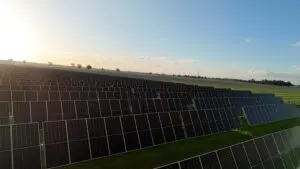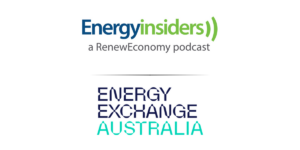Dozens of Australian businesses are actively seeking alternative ways to source energy – including power purchase agreements for the procurement of renewable energy generation – that is much cheaper and cleaner than what they are currently getting from the grid, a new report from a major Australian bank has claimed.
In a report published on Thursday, Westpac became the latest to acknowledge that a combination of unprecedented energy price hikes, energy security concerns, and falling renewable energy prices had sparked a major trend for business and industry to look at self-generation.
This is a trend we have seen emerging through major announcements by the likes of big industrials Sun Metals, and Liberty OneSteel – the latter recently announcing massive investments in solar and storage that will knock 40 per cent off the electricity costs of its Australian steel business.
And from big corporations like Telstra, which in May this year signed a deal with RES Australia to take all the output – and the renewable energy certificates – from its 70MW solar farm that is being built near the Queensland town of Emerald.
But according to the Westpac report, this is only the tip of the iceberg for these types of deals – and the graph below helps illustrate why.
“Hefty price rises have put innovative approaches to energy on the agenda for organisations of all sizes,” the Westpac report says.
According to Paul Peters, the chief of energy efficiency company Verdia, with which Westpac has partnered on its Energy Efficiency Financing program, major Australian energy users are now paying between $A120 per MWh and $A350 for power from the grid.
Meanwhile, the price of solar for a major corporate has fallen to around $A65 per MWh.
Peters says that what was an issue for procurement departments just a year ago has now become a major item for consideration, often at board level, where decisions are transforming approaches to energy needs, capital allocations and managing risk.
For Westpac’s project finance team, that has translated into a good deal of new business.
According to Jason Tranter, Westpac’s head of project finance, up to 20 organisations currently have tender programs underway, for the procurement of renewable energy.
“On the back of the Telstra PPA, we’ve had a lot of approaches recently (for funding projects with corporate PPA’s), because there is a wave of corporates who are waking up to the new world of energy prices and are shocked by the rise in their energy bills,” Tranter said.
He cited one instance, where a small business was looking at alternative ways to source energy – including developing options such as leasing and signing a corporate PPA – after experiencing a greater than a 100 per cent year-on-year increase on its energy bill.
“My view is that the underlying move to renewable energy is here to stay, and that new technologies are taking over from the old in the energy generation market,” Tranter said.
“The combination of greater regulatory certainty and a quantum shift in the cost of installed wind and solar you now have a very attractive market for investors to develop renewable energy projects and strong incentives for corporates to sign PPAs.”
Also recognising the trend is international law firm Baker McKenzie, which has this week released its own “Guide to Structuring Corporate Renewable PPAs” in partnership with WWF Australia and the New South Wales Office of Environment and Heritage.
Baker McKenzie says the “Green Hedging” report – which outlines the fundamentals of corporate PPAs and other procurement vehicles available in the Australian market – “is ultimately intended as a tool to facilitate the expansion of this new market.”










